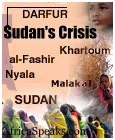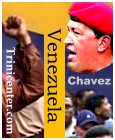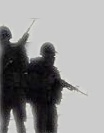 |






 AfricaSpeaks Weblog AfricaSpeaks Weblog
 Rootswomen Weblog Rootswomen Weblog
 Rootsie's Weblog Rootsie's Weblog
|
UN's Largest Group of States Rejects War on Iraq
Posted: Thursday, October 17, 2002
by Thalif Deen, Inter Press Service
UNITED NATIONS - The largest political grouping at the United Nations rejected Wednesday "any type of unilateral action against any member state of the United Nations".
The 114-member Non-Aligned Movement (NAM), which represents the overwhelming majority of the 191 U.N. member states, said it just does not want a war with Iraq.
Speaking on behalf of NAM, South African Ambassador Dumisani Shadrack Kumalo said: "We would rather this be resolved in a peaceful manner."
Contrary to the stand taken by the United States, NAM wants the Security Council to allow U.N. arms inspectors to return to Iraq without further delay.
Iraqi President Saddam Hussein has already invited inspectors into the country, but the United States is seeking a new Council resolution that would toughen the inspectors' mandate before they could leave for Baghdad in search of Iraq's nuclear, biological and chemical weapons.
Addressing an "open meeting" of the Security Council, Kumalo said that 11 years of U.N. sanctions have brought "endless suffering to the ordinary people" in Iraq.
"We hope that the Security Council would despatch the inspectors to Iraq as soon as possible, and allow the people of Iraq to focus their attention on rebuilding their country."
The Council meeting, which is customarily confined to its five permanent and 10 non-permanent members, was opened to all 191 member states, specifically to debate Iraq. The proposal for an open meeting was initiated by South Africa, on behalf of NAM.
"My dream would be for all 191 of them to speak," Kumalo told reporters Tuesday. "It is essential that the views of all member states be heard on such a critical subject."
A Third World diplomat, speaking on condition of anonymity, told IPS that one of the biggest political myths is that the Security Council represents the will of the international community.
"This is a longstanding fairy tale," he said. "The international community is really represented by the 191-member U.N. General Assembly, 114 of whose members belong to NAM," he added.
U.S. President George W. Bush, who has received authorization from the U.S. House of Representatives and the Senate to launch a military attack on Iraq, is seeking a similar endorsement from the Security Council to prove he has the blessings of the "international community" for a U.S. war against Iraq.
But for the last three weeks, the Council has remained deadlocked, with sharp divisions even among the five veto-wielding permanent members - the United States, Britain, France, China, and Russia.
The negotiations have bogged down primarily because France is insisting on two resolutions: the first one laying down stringent conditions for arms inspections inside Iraq, and a second one authorizing the use of military force if and when Iraq refuses to cooperate with U.N. arms inspectors.
The United States is insisting that there should be only one resolution, which will permit Washington to automatically invade Baghdad if Saddam reneges on his pledge to cooperate with inspectors.
Kumalo told delegates that the Security Council was being asked to consider a matter that has important repercussions for the entire United Nations.
"We are here to voice our concerns regarding the possibility that the United Nations is now being asked to consider proposals that open up the possibility of a war against a member state," he added.
While calling upon Iraq to comply with all relevant Security Council resolutions, Kumalo said that no member state should be exempted from carrying out obligations as determined by the Council.
Iraqi Ambassador Mohammed Aldouri said the U.S. administration is seeking a "blank check" from the Security Council to invade and occupy Iraq. He said Iraq does not possess weapons of mass destruction.
U.N. Secretary-General Kofi Annan, whose statement was read out by his deputy Louise Frechette, said the situation created by Iraq's failure to comply fully with Security Council resolutions since 1991 "is indeed one of the gravest and most serious facing the international community".
"I appeal to all who might have influence with Iraq's leaders to impress on them the vital importance of accepting the weapons' inspections. And I myself urge Iraq to comply with its obligations - for the sake of its own people, and for the sake of world order," he said.
Annan also said that Iraq's decision to re-admit inspectors without conditions is an important first step "but only a first step".
"Full compliance remains indispensable, and it has not yet happened." He also warned Iraq that inspectors must have "unfettered access and this Council will expect nothing less".
"It may well choose to pass a new resolution strengthening the inspectors' hands, so that there are no weaknesses or ambiguities," he added.
Ambassador Arthur Mbanefo of Nigeria told delegates that "in view of the fact that the debate we are having today is in the context of compliance with U.N. resolutions and international law, we cannot fail to note that there are many other Security Council resolutions, which some member states have, so far, failed to honor or comply with."
"The selective enforcement of resolutions is just as unhelpful as non-compliance," he added.
Countries other than Iraq are currently violating more than 90 Security Council resolutions, says Stephen Zunes, associate professor of politics at the University of San Francisco.
Thirty-one of those resolutions deal with Israel, according to his figures.
Ambassador Arnoldo M. Listre of Argentina told the Security Council that the use of force should be a last resort, and to be legitimate, it must be exercised in accordance with international law, the U.N. charter, and with the authorization of the Security Council.
Kuwaiti Ambassador Mohammad Abulhasan, whose country was invaded by Iraq in August 1990, called upon the Iraqi government to comply fully with Security Council resolutions and establish its credibility by permitting U.N. arms inspectors into the country.
"But any use of force must be a last resort, and within the U.N. framework, and only after all other available means have been exhausted," he added.
Copyright 2002 IPS
 Printer friendly version Printer friendly version
 Send page by E-Mail Send page by E-Mail
|








